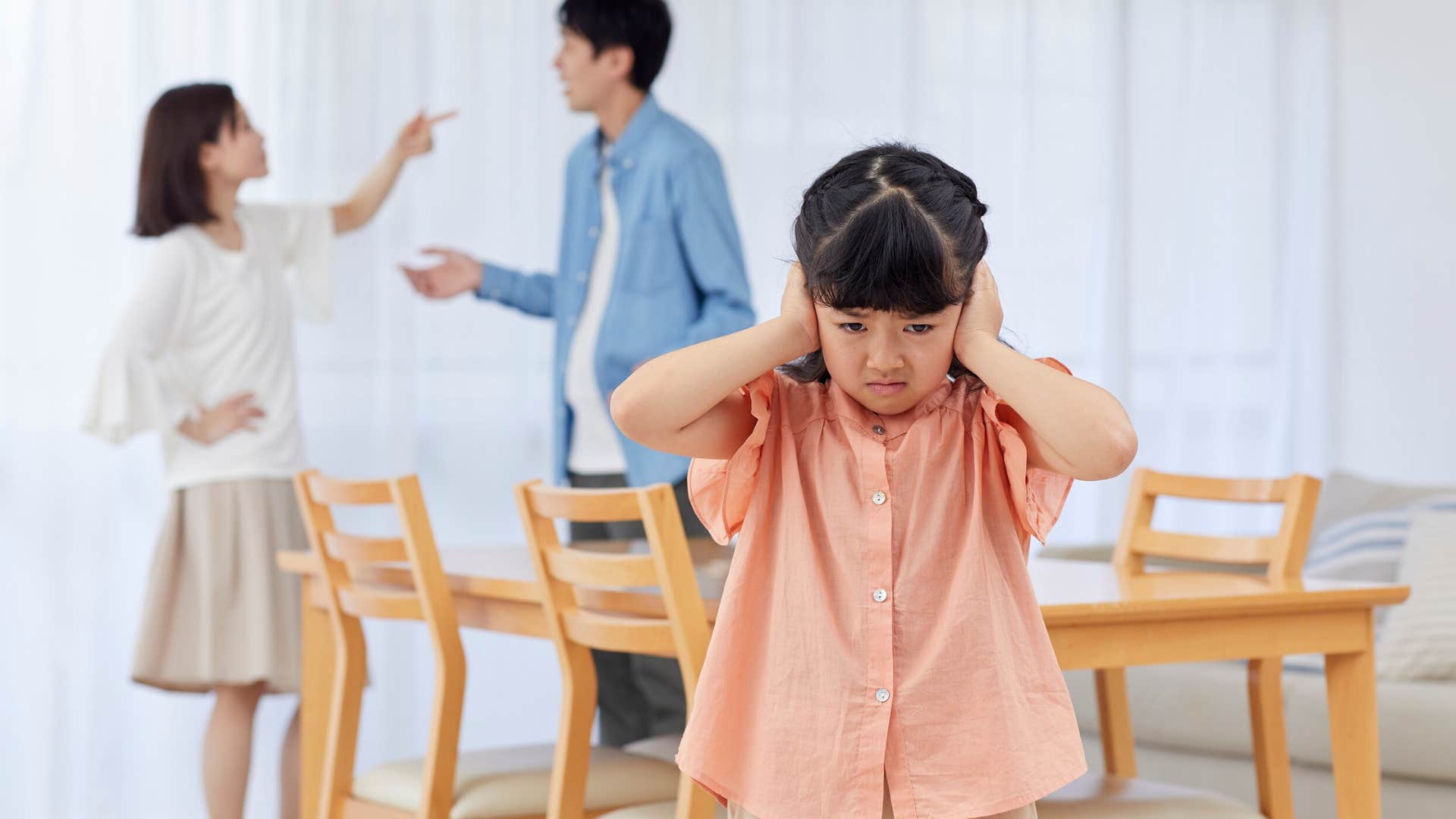11 Things That Never Feel Truly Safe If You Were Raised By Emotionally Immature Parents
Emotionally immature parents don't know how to provide their children with an overriding sense of safety.
 Andrey Arkusha / Shutterstock
Andrey Arkusha / Shutterstock Growing up with emotionally immature parents leaves marks that are subtle but lasting. Instead of providing steady comfort, they may have been unpredictable, dismissive, or too absorbed in their own needs to provide the stability children crave. The result is often a lingering sense of unease, even in adulthood, where certain aspects of life never feel fully safe.
What makes this so challenging is the way insecurity often shows up in everyday areas of life. A partner’s tone of voice, a shift in a friendship, or even a small mistake at work can trigger deeper anxieties that feel out of proportion. These reactions are echoes of childhood environments where safety couldn’t be counted on.
These are 11 things that never feel truly safe if you were raised by emotionally immature parents
1. Trusting someone with your feelings
 fairpharma from pixabay via Canva
fairpharma from pixabay via Canva
If your parents dismissed or mocked your emotions, it’s natural to feel uneasy opening up as an adult. Sharing feelings may seem like an invitation for judgment or rejection.
Research shows that children raised by emotionally unavailable parents often struggle with emotional expression later in life. The fear isn’t irrational. It’s actually rooted in lived experience. So even in safe relationships, vulnerability may always feel like a risk.
2. Relying on others for support
 RollingCamera from Getty Images via Canva
RollingCamera from Getty Images via Canva
When parents failed to provide consistent support, many children learned early to rely only on themselves. As adults, leaning on others can feel unsafe, like handing over control to someone who may let you down. This self-reliance might look strong from the outside, but it often hides deep mistrust.
Studies on attachment theory confirm that inconsistent caregiving leads to anxious or avoidant attachment styles. The result is that depending on others, even when reasonable, feels threatening.
3. Setting boundaries
 Jay Yuno from Getty Images Signature via Canva
Jay Yuno from Getty Images Signature via Canva
For those raised in environments where boundaries were ignored, asserting needs can feel dangerous. Saying “no” might stir fears of backlash, guilt, or abandonment.
People who grew up in invalidating family systems often struggle with boundary-setting well into adulthood. Boundaries should feel protective, but for many from these backgrounds, they trigger anxiety instead.
4. Believing love won’t be withdrawn
 Syda Productions via Canva
Syda Productions via Canva
Children of emotionally immature parents often grew up with love that felt conditional, based on performance, compliance, or mood. As adults, this makes them hyper-aware of doing something that could make love vanish.
Research on conditional parenting shows that this dynamic is linked to anxiety and people-pleasing behaviors later in life. No matter how committed a partner may be, a part of them fears love isn’t guaranteed.
5. Expressing anger
 Photo Images via Canva
Photo Images via Canva
In households where anger was punished, mocked, or escalated into chaos, showing frustration feels unsafe. Many suppress it, fearing it will destroy relationships. Yet bottling up anger often leads to resentment and burnout.
Psychologists note that anger itself isn’t destructive. What matters is how it’s expressed. But for those from emotionally immature families, even healthy anger feels like crossing a dangerous line.
6. Making mistakes
 Yuganov Konstantin via Canva
Yuganov Konstantin via Canva
Mistakes in childhood may have been met with ridicule, punishment, or cold withdrawal. That creates adults who treat mistakes as existential threats. Instead of learning, they spiral into shame.
Research shows that parental criticism is linked to perfectionism and fear of failure in adulthood. Trial, error, and growth should be safe, but instead, they feel like a minefield.
7. Expecting stability to last
 Pressmaster via Canva
Pressmaster via Canva
If home life was unpredictable, stability in adulthood often feels temporary. A steady job, a supportive relationship, or financial comfort may feel fragile, like it could vanish without warning.
This sense of impermanence is exhausting because it keeps the nervous system on high alert. Even good things can feel unsafe when your past experiences have taught you not to trust them.
8. Believing your needs matter
 photosvit from Getty Images via Canva
photosvit from Getty Images via Canva
Emotionally immature parents often centered their own needs, leaving children to minimize or deny theirs. As adults, prioritizing their own well-being may feel selfish or even dangerous.
Research on parentification, where children take on adult roles, shows long-term effects on self-worth and caregiving tendencies. These adults may excel at meeting others’ needs but freeze when it comes to acknowledging their own.
9. Conflict
 Aflo Images via Canva
Aflo Images via Canva
Conflict in childhood homes may have meant yelling, withdrawal, or unpredictable reactions. This makes adult conflict feel unsafe, even when it’s calm and constructive. Many people either avoid it altogether or overreact out of fear.
People raised in high-stress family environments often struggle to regulate during disagreements. Even small arguments feel threatening, not normal.
10. Trusting positive feedback
 sturti from Getty Images Signature via Canva
sturti from Getty Images Signature via Canva
Compliments or praise may feel like setups, because in childhood, positive words often didn’t last or were paired with criticism. Adults raised this way may dismiss or distrust genuine affirmation.
Instead of feeling encouraged, they brace for the catch. What should be uplifting feels unstable, leaving them unable to fully accept being valued.
11. Just being yourself
 Africa images via Canva
Africa images via Canva
Perhaps the deepest wound is that authenticity itself feels unsafe. If childhood required constant adaptation, being the caretaker, the achiever, or the quiet one, then adulthood may carry the same pressure.
Research indicates that a lack of parental emotional attunement is strongly associated with lower self-acceptance later in life. These adults may never fully feel safe showing up as who they are, without apology or disguise.
Sloane Bradshaw is a writer and essayist who frequently contributes to YourTango.

